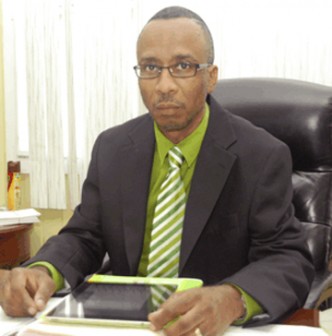Creating a modern, technically capable and efficient city is critical to an enhanced business culture in Georgetown, Chairman of the 2010 Commission of Enquiry into the operations of the Mayor and City Council Keith Burrowes told Stabroek Business in an interview earlier this week.
“Enhancing the capacity of the capital to provide an enabling environment for the growth and expansion of trade and commerce depends to a considerable extent on the quality of service which the municipality can provide. I recall that during the hearings of the Commission of Enquiry, people from the private sector, businessmen, were complaining about the uncontrolled vending that persists in the city. They made the point that while they pay high taxes the vendors pay nothing,” Burrowes said.

Burrowes believes that the fact that City Hall has not addressed the vending issue after several years is one of its more glaring failings. “Apart from the concerns of the business community associated with vending there is also the issue of encumberment. This too was a matter that came up at the level of the Commission of Enquiry and again there is a link to the volume of trade that is done in the city. More than that, we need to ask ourselves whether we can seriously contemplate a viable tourism sector given the state of our city,” he said
He expressed deep disappointment over the findings submitted to him by Ramon Gaskin, the consultant appointed to determine the extent to which the 71 pages of recommendations embodied in the report on the Commission of Enquiry had been implemented. Quite apart from the fact that the city’s civil servants appeared indifferent to the report’s recommendations, Gaskin’s investigations revealed a litany of financial and operational irregularities which Burrowes admitted might amount to fraud.
And yet Burrowes said citizens would be ill-advised to become so preoccupied with the crisis at City Hall that the nexus between enhancing the capacity of the municipality and creating an enabling environment for business could not be recognised.
“That ought to be our focus. We need, for example, to take a long, hard look at the relationship between the existing solid waste disposal regime and those considerations that have to do with safety and health. I know of at least one case in which a restaurant has had to be closed down on account of rats and the threat to patronage of our urban eating houses becomes evident if we cannot provide a safe health and safety environment. That, of course, will have implications…,” he said.
Burrowes’ criticism of the state of affairs at City Hall is rooted in the minimal movement it has made towards seeking to re-invent itself since the report of the Commission of Enquiry.
Burrowes said what galls him is the fact that the process with which he was charged extended itself beyond the mandate by offering the municipality supporting resources with which to help implement the recommendations.
While not unmindful of the nature of the current bureaucracy that manages the municipality, he said he is an advocate of City Hall being run “like a business.”
Municipal services have “a clearly defined business character” and that there is more than a little justification for “a structure that is headed by a Chief Executive Officer and staffed by specialists in the various service delivery areas. While I am not advocating that people simply refuse to pay rates and taxes the argument that they make is that they will not pay for services that they do not receive. It is the same principle that informs any other form of business,” he said.
Municipal markets, Burrowes said, best reflect the potential of City Hall to become more economically viable. “The point here is that municipal markets are money-earners. The onus is on the council to run those markets efficiently otherwise, in the real business world, private sector clients will pursue their own options.”




